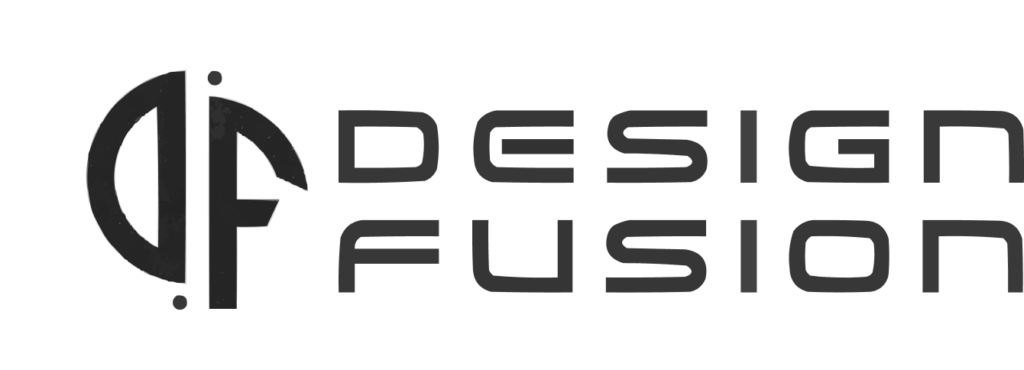In the dynamic world of website development and design, staying ahead of the curve is essential for success. As technology evolves, so do the tools and platforms that enable the creation of beautiful, functional websites. Content Management Systems (CMS) have become an indispensable resource for web developers and designers, revolutionizing the way websites are built and managed. In this blog, we’ll explore the power of CMS in website development and design, highlighting the key benefits and the impact it has on the industry.
What is a Content Management System (CMS)?
A Content Management System (CMS) is a powerful software application designed to simplify the creation, management, and organization of digital content on a website. This technology has been a game-changer in the world of website development and design by enabling individuals and businesses to establish and maintain an online presence without the need for extensive technical expertise. Let’s delve into the various facets that make CMS a vital component in the web development and design process.
User-Friendly Interface
At the heart of a CMS’s appeal is its user-friendly interface. Unlike traditional web development methods that often require a deep understanding of programming languages like HTML, CSS, and JavaScript, CMS platforms are engineered to be approachable and intuitive. They offer a graphical interface that empowers users to interact with their websites in a manner similar to using familiar software applications.
This ease of use means that individuals with varying levels of technical knowledge can manage their website content effectively. Whether you’re a small business owner, a blogger, or a marketing professional, a CMS makes the website management process accessible to virtually anyone. Users can create and update content, modify design elements, and make adjustments without having to grapple with complex code.
User-Friendly Interface
CMS platforms are specifically designed to streamline content creation and management. With these systems, you can effortlessly add and edit text, images, videos, and other multimedia elements. This makes it possible for website owners to keep their content fresh and relevant, which is crucial for attracting and retaining visitors.
Additionally, CMS platforms often include robust content organization features. Users can categorize content, create tags, and set up hierarchical structures, simplifying the process of finding and accessing information on the website. This organization not only benefits the user but also contributes to better search engine optimization (SEO).
Templates and Themes
A standout feature of CMS platforms is their extensive library of templates and themes. These are pre-designed layouts and styles that users can apply to their websites. These templates are often created by professional designers, ensuring that your website’s design is visually appealing and aligned with industry standards.
Templates and themes provide a solid foundation for website design, enabling users to achieve a polished look without starting from scratch. While these designs are customizable to fit your branding and specific needs, they save a considerable amount of time compared to the lengthy process of designing a website from the ground up.
Customization and Flexibility
CMS platforms offer a high degree of customization and flexibility. Users can modify templates and themes to suit their unique branding and design preferences. This customization also encompasses aspects such as layout, color schemes, typography, and more. The result is a website that reflects your individual identity, aligns with your business objectives, and captivates your target audience.
Moreover, CMS systems provide a foundation for further customizations through the use of plugins or extensions. These additions can enhance website functionality by incorporating features like contact forms, e-commerce capabilities, social media integration, and much more. The ability to tailor your website to your exact requirements is a pivotal aspect of CMS platforms.
Streamlined Website Development
The speed and efficiency that Content Management Systems (CMS) bring to the website development process are indeed among their most compelling advantages. Let’s delve deeper into how CMS achieves this and why it’s a game-changer compared to traditional coding-based approaches.
Traditional Coding vs. CMS Efficiency
Traditional website development, often reliant on manual coding, can be a painstaking process. It demands web developers to write extensive lines of code from scratch to create and design every aspect of a website. This method requires a high level of technical expertise, which is a barrier for many aspiring website owners and smaller businesses who lack extensive coding skills.
In contrast, CMS platforms offer a streamlined, user-friendly, and code-agnostic approach. Here’s how CMS stands out:
1. Pre-built Templates, Themes, and Plugins
CMS platforms come equipped with an extensive library of pre-built templates and themes, designed by professionals. These templates serve as starting points for website development, providing visually appealing designs that are ready to use. The availability of such templates and themes dramatically reduces the time and effort required to create a visually attractive website.
Moreover, CMS platforms feature a wealth of plugins or extensions that can be easily integrated into a website. These plugins offer additional functionalities like contact forms, e-commerce capabilities, social media integration, SEO tools, and more. By using these pre-developed elements, developers can add complex features without the need to code them from scratch. This not only speeds up development but also ensures a higher level of functionality and quality.
2. Modular Architecture
The modular architecture of CMS systems allows for quick and straightforward customization. This means that developers can add, remove, or modify features and components with ease. The modularity of CMS empowers developers to create a unique website tailored to the specific needs and preferences of their clients or businesses.
This modularity is in stark contrast to traditional coding, where changing one aspect of a website may necessitate extensive adjustments throughout the codebase. In CMS, developers can focus on specific elements or features, making the development process highly efficient and agile.
3. Accelerated Development Timelines
The combination of pre-built templates, themes, plugins, and modular architecture leads to significantly accelerated development timelines. With CMS, developers can efficiently piece together the puzzle of a website. This efficiency is particularly valuable in meeting tight client deadlines and ensuring prompt project delivery.
In summary, CMS platforms revolutionize website development by eliminating the need for extensive manual coding and introducing a streamlined, user-friendly approach. Pre-built templates, themes, and plugins, coupled with a modular architecture, allow developers to construct websites swiftly and efficiently. This not only saves time but also makes the web development process more accessible to a broader audience, transforming the way websites are created and managed. The result is a win-win situation, where developers work more efficiently, clients receive their projects promptly, and website owners benefit from professional, feature-rich websites without the need for advanced technical expertise.
Enhanced Website Design
Aesthetics and user experience are cornerstones of successful website design. A well-designed website not only catches the eye but also provides a seamless and enjoyable browsing experience for visitors. Content Management Systems (CMS) play a pivotal role in achieving these objectives by offering a wealth of design options and customization features.
Professional Templates and Themes
One of the standout features of CMS platforms is their vast collection of professionally designed templates and themes. These templates are created by web design experts and encompass a wide range of styles, from minimalistic and modern to bold and creative. These designs are tailored to meet various industry-specific and aesthetic preferences.
The inclusion of these pre-made templates and themes provides numerous benefits to web designers and website owners:
- Time Savings: Designing a website from scratch can be a time-consuming process. With CMS, designers can quickly select a template that matches the desired look and feel of the website. This not only saves time but also ensures a professional, visually appealing design.
- Quality Assurance: CMS templates and themes are designed by professionals who understand the nuances of web design, ensuring high-quality, aesthetically pleasing outcomes.
- User-Friendly: These pre-built designs are user-friendly, allowing even those with limited design experience to create a visually engaging website.
- Consistency: Templates and themes ensure design consistency throughout the website, making it more polished and coherent.
Customization and Creative Control
While the availability of templates and themes offers a strong foundation for website design, CMS platforms also empower web designers with extensive customization options. Designers can modify these templates to align with the unique branding, goals, and objectives of each website. This high degree of creative control allows for the creation of visually stunning websites that resonate with the target audience.
Web designers can customize various aspects of the website, including:
- Layout: Modify the website’s structure and page arrangement to suit the content and purpose of the site.
- Colors: Tailor the color scheme to match branding and create a visually harmonious experience.
- Fonts: Select fonts that align with the brand’s personality and enhance readability.
- Images and Graphics: Incorporate custom images, graphics, and visual elements that tell the brand’s story and engage visitors.
- Functionality: Implement specific features and functionalities that serve the website’s objectives.
This level of customization allows designers to transform a generic template into a unique and highly engaging digital space. It ensures that the website not only looks good but also effectively communicates the brand’s identity, values, and messaging.
Accessibility and Collaboration
CMS is not limited to the tech-savvy. Even those with minimal technical knowledge can manage and update website content, thanks to the intuitive interface. This accessibility encourages collaboration between developers, designers, and content creators, fostering a more cohesive and efficient workflow.
Content creators can upload and edit text, images, and multimedia without needing extensive HTML or coding skills. In addition, CMS often includes role-based access, allowing administrators to assign specific permissions to team members, ensuring that only authorized individuals can make changes to the website.
SEO and Content Optimization
A well-structured CMS can greatly assist in optimizing websites for search engines. With built-in SEO tools and plugins, CMS platforms make it easier to manage on-page SEO elements, such as meta tags, URLs, and image alt text. This results in better visibility in search engine rankings, attracting more organic traffic.
Additionally, CMS platforms often offer plugins that aid in content optimization and marketing. Features like scheduling content, managing social media integration, and tracking user engagement are integral to building and growing an online presence.
Scalability and Future-Proofing
Scalability and sustainability are critical considerations for website owners, especially in a fast-paced digital landscape. Content Management Systems (CMS) offer an exceptional advantage in this regard, as they are designed to adapt and grow with your website’s evolving needs. Let’s explore how CMS platforms handle scalability and future-proofing, making them an excellent choice for websites of all sizes and purposes.
Scalability for All Website Sizes
One of the key attributes of CMS platforms is their scalability. Whether you’re starting with a small blog or running a large e-commerce site, a CMS can accommodate the changing requirements of your website. Here’s how CMS facilitates scalability:
- Modular Architecture: CMS platforms typically have a modular architecture. This means that additional features, functionalities, and content can be easily integrated as your website grows. You can add e-commerce capabilities, membership systems, forums, or any other functionality to adapt to your evolving business model.
- Content Management: Content creation and management are core features of CMS platforms. As your website expands, you can effortlessly add new pages, articles, products, or services without worrying about the technical complexities of coding. This makes it easy to keep your site’s content fresh and up to date.
- Performance Optimization: CMS platforms often include tools and plugins for optimizing website performance, which is crucial for large and complex websites. You can implement techniques like content caching, image optimization, and database management to ensure that your site remains fast and responsive as it grows.
- Scalable Hosting Solutions: CMS platforms are compatible with a wide range of hosting providers, many of which offer scalable hosting plans. This means that as your traffic and resource demands increase, you can seamlessly upgrade your hosting without causing any disruption to your website.
Continuous Updates and Security
Beyond scalability, CMS platforms incorporate a commitment to keeping your website secure and aligned with the latest web standards:
- Updates: CMS developers release regular updates that include new features, bug fixes, and security enhancements. These updates ensure that your website remains up to date and competitive in the ever-changing online landscape.
- Security Patches: Security is a top priority for CMS platforms. Developers swiftly respond to emerging security threats by releasing patches and updates that fortify your website against vulnerabilities. This proactive approach keeps your website and user data secure.
- Compliance with Web Standards: CMS platforms adhere to industry standards and best practices in web development. This ensures that your website functions correctly, looks great, and is compatible with various browsers and devices. It also plays a role in SEO, as search engines favor websites that meet these standards.
Future-Proofing and Cost-Efficiency
The combination of scalability, regular updates, and security measures inherent to CMS platforms ultimately amounts to future-proofing. This means that your website can adapt to the ever-changing digital landscape without requiring a major redesign or redevelopment every few years. This not only saves you time and resources but also ensures that your website maintains its relevance and effectiveness.
Conclusion
In the ever-evolving landscape of website development and design, Content Management Systems have emerged as powerful allies. Their ability to streamline development, enhance design, promote accessibility, and facilitate collaboration make them indispensable tools for web professionals. By harnessing the power of CMS, web developers and designers can create stunning websites that captivate audiences and provide a seamless user experience. In an era where the online presence is paramount, CMS is the key to unlocking the potential of web development and design.
In summary, CMS platforms have changed the way websites are developed and designed, making it easier, more efficient, and more collaborative. They offer powerful tools for SEO, content optimization, and scalability, ensuring that websites stay relevant and engaging for years to come. Whether you’re a developer, designer, or business owner, integrating a CMS into your website strategy can lead to outstanding results and a competitive edge in the digital landscape.


